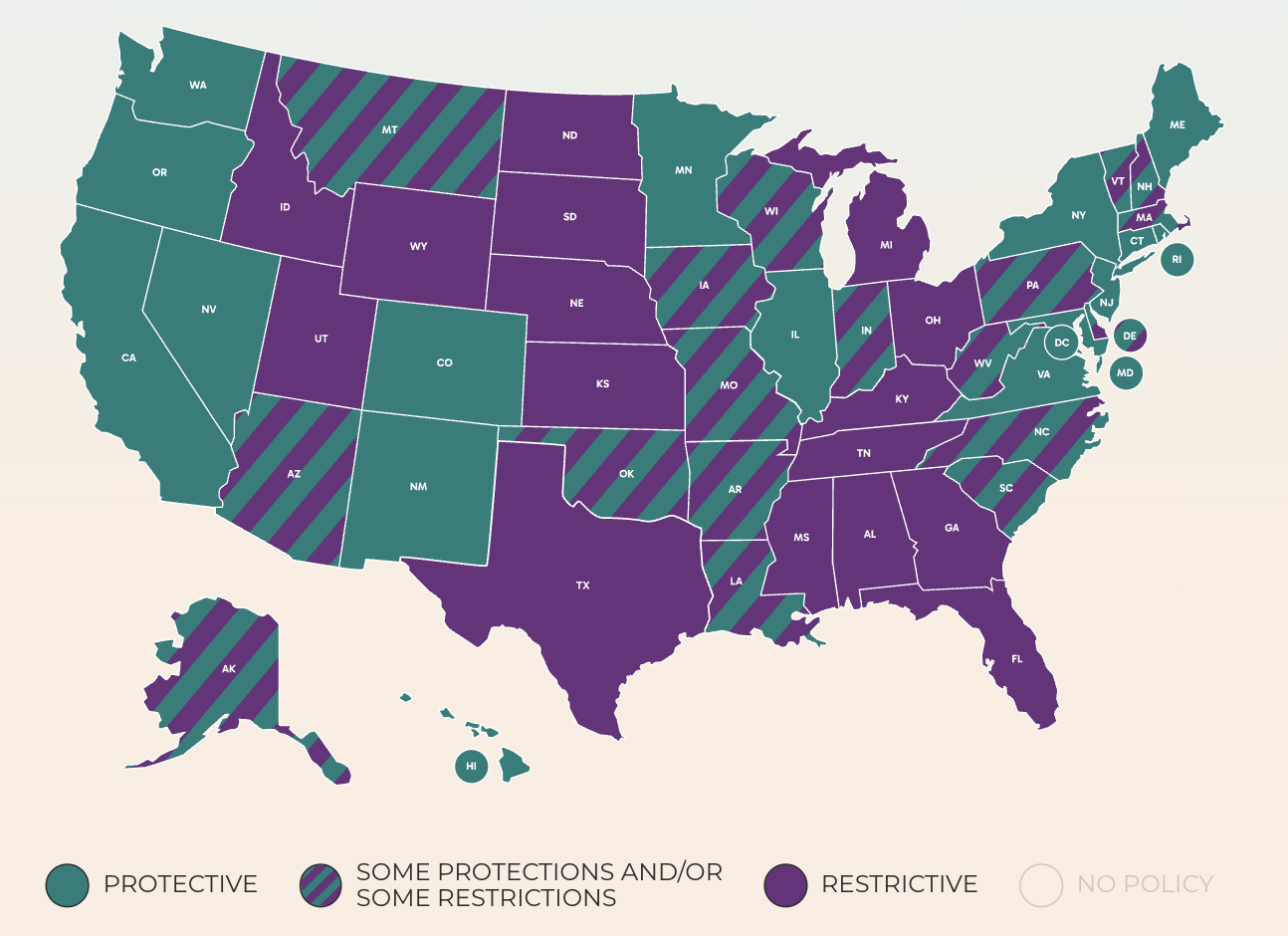
Reproductive Health Supplies Coalition/Unsplash

Audio By Carbonatix
Though Colorado is a national leader for reproductive health rights, the state’s policy protections for birth control access leave room for improvement, according to a new report.
The Population Reference Bureau’s first-ever Contraceptive Policy Scorecard names Colorado as one of sixteen states with overall “protective” laws regarding access to contraceptive methods used to prevent pregnancy. However, Colorado falls short in some policy areas, earning mixed scores in four of the nine categories analyzed, according to the report released on Wednesday, July 16.
This resulted in Colorado being excluded from the list of the most protective states. The report does not rank all fifty states in order, but researchers identify the top seven states as California and Washington (tied for first place), Connecticut and New York (tied for third), New Mexico (fifth), and Maryland and Oregon (tied for sixth).
“No state received a perfect score,” says Christine Power, senior policy advisor at PRB and co-author of the scorecard. “The bottom line is that Colorado has made some pretty significant and meaningful progress in extending contraceptive access support, but there are opportunities to expand access to ensure that every resident has full, comprehensive contraceptive care.”
The report finds that sixteen states and Washington, D.C., have policies that largely protect access to contraceptives, while sixteen states have policies that primarily restrict access. The remaining eighteen states have a combination of restrictive and protective policies.

The State of Access: Contraceptive Policy Scorecard. Data current as of July 14, 2025.
Population Reference Bureau
The disparity in contraception protections across states is particularly important now as federal protections waver. After the U.S. Supreme Court overturned federal abortion rights in 2022, Justice Clarence Thomas argued that they should reconsider and overrule various other past rulings, including one that codified the right to contraception access.
Researchers at PRB say recent federal decisions are already limiting access to contraceptives, pointing to the June Supreme Court ruling that allows states to cut off Medicaid funding for Planned Parenthood (a leading provider of contraceptive care) and the newly-passed One Big Beautiful Bill Act that is expected to strip Medicaid coverage from 11.8 million Americans (cutting low income individuals off from the nation’s largest public payer of family planning services).
“Your access to reproductive health care currently depends on where you live, which is a reality that is really unfortunate,” says Cathryn Streifel, senior program director at PRB and co-author of the scorecard. “As federal protections for contraceptive access crumble…state policies are more important than ever.”
Colorado Scorecard
The report evaluates state policies for contraception access across three tiers: Affordability, availability and environment of care. Colorado receives flying colors for its affordability policies, including for expanding eligibility for Medicaid and requiring insurers to cover prescription and some over-the-counter contraceptives. But the state has “some protections and/or some restrictions” in two out of three categories under both the availability and environment of care tiers.
The scorecard attributes these mixed ratings because Colorado fails to do the following:
- Require emergency rooms to dispense emergency contraceptives
- Ban individual providers and private health facilities from refusing to provide contraceptive services for religious or moral reasons
- Require sex education in all schools
- Immediately provide patients with the twelve-month supply of prescription contraceptives that insurance covers, instead requiring patients to initially receive a three-month supply
Colorado fares better than most of its neighbors, however. Of the seven states that border Colorado, only New Mexico also qualifies as an overall “protective” state for contraception access. The researchers hope states like Colorado, and the scorecard in general, help inspire policymakers nationwide.
“How is this particular state that is surrounded by more restrictive states able to pass these more supportive policies? Are there lessons there that can be applied to other states?” Streifel asks. “We’re at a moment where understanding state policy landscapes matters more than ever.”
The report identifies the top seven most restrictive states, in order, as Kansas, Mississippi, Florida, Wyoming and Alabama (tied for fourth), and Texas and Tennessee (tied for sixth).